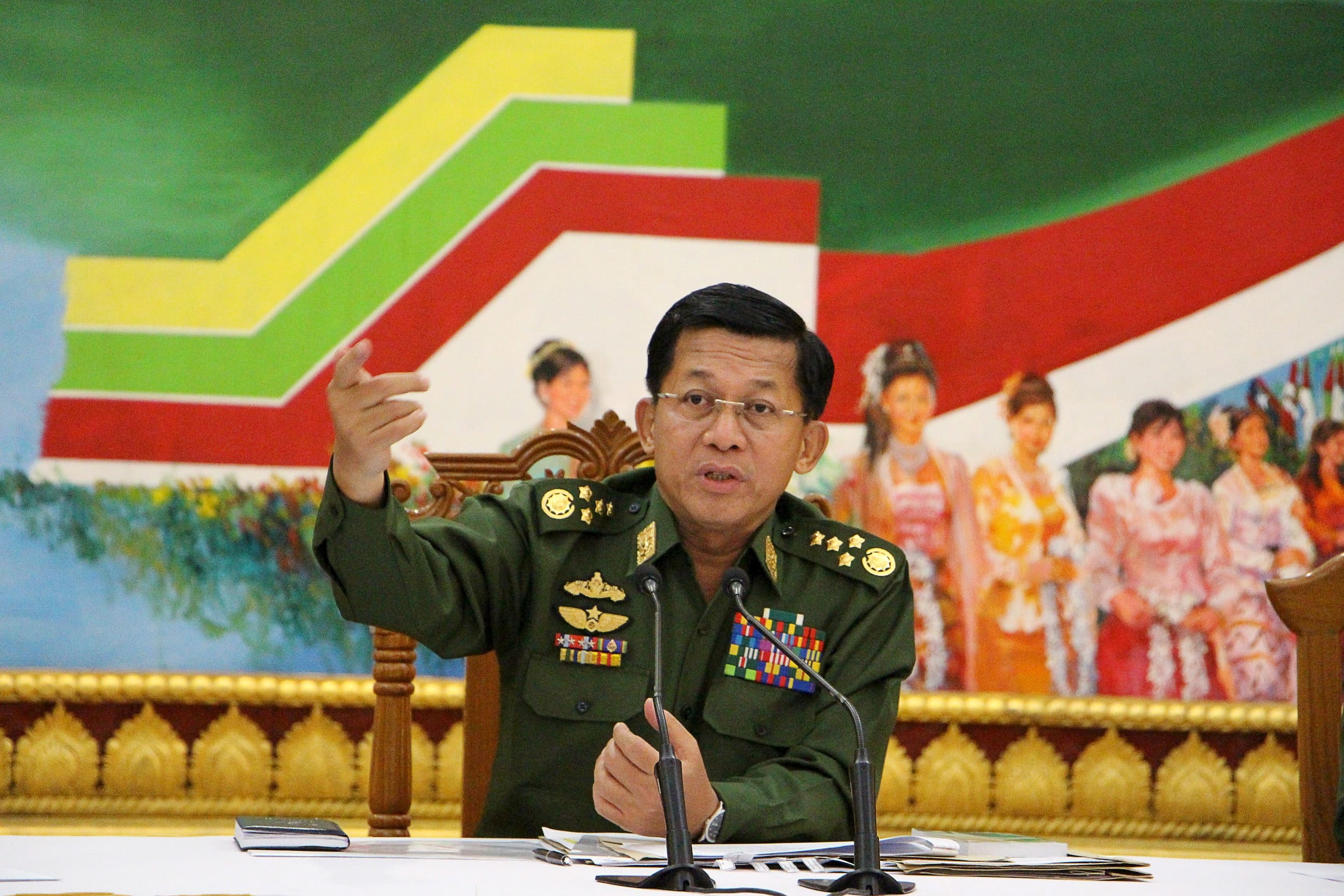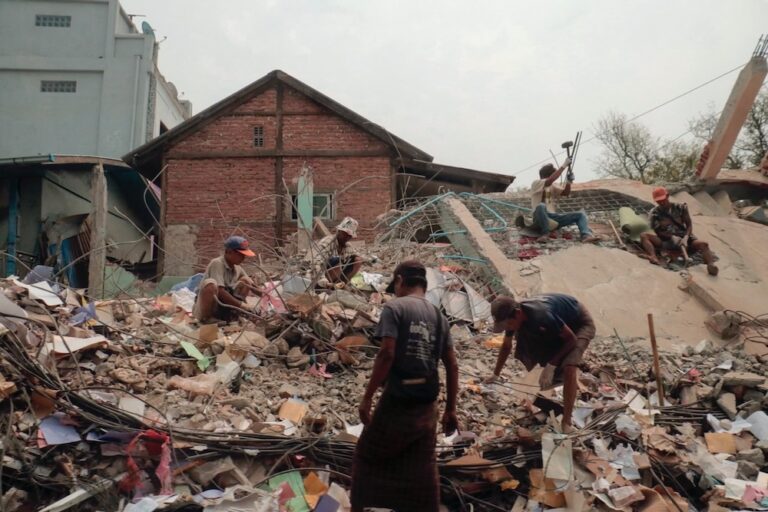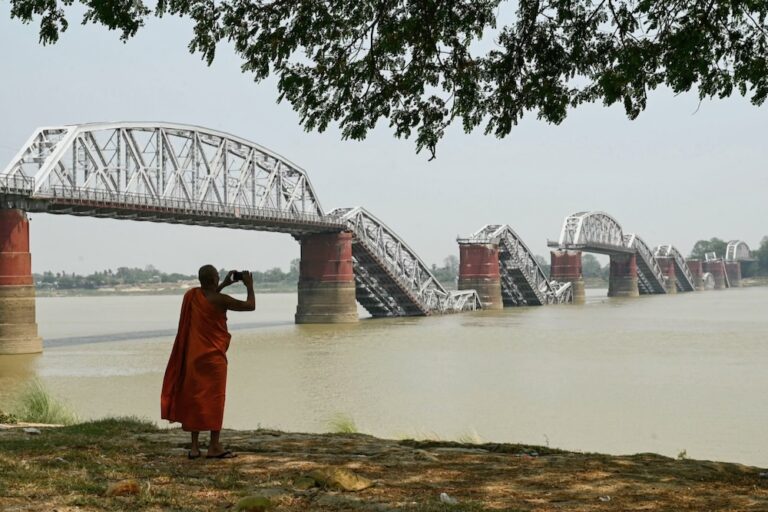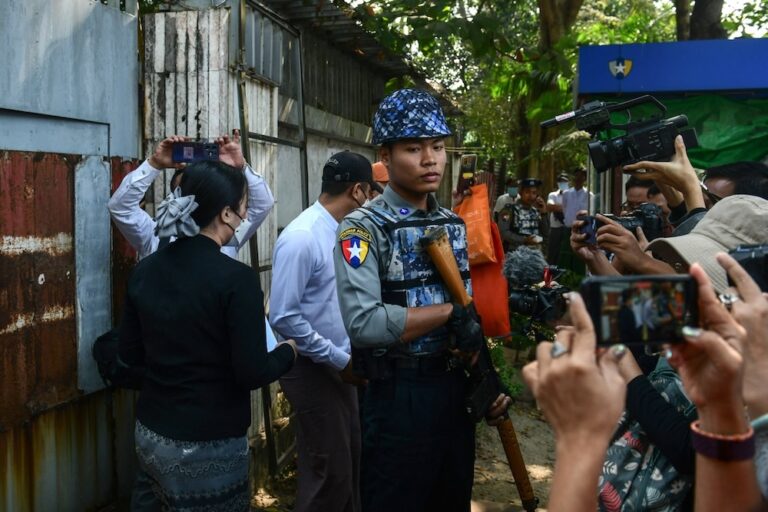Myanmar's authorities must immediately and unconditionally release a peace activist and a young woman who have been arrested for mocking the country's army chief on Facebook, Amnesty International said in a statement on 15 October.
This statement was originally published on mizzima.com on 16 October 2015.
Myanmar’s authorities must immediately and unconditionally release a peace activist and a young woman who have been arrested for mocking the country’s army chief on Facebook, Amnesty International said in a statement on 15 October.
Peace activist, Patrick Kum Jaa Lee, 43, was arrested yesterday evening [15 October 2015] at his home in Yangon for a Facebook post showing someone stepping on a photo of Commander-in-Chief Senior General Min Aung Hlaing. His phone and computer were confiscated and the post was deleted. He is currently detained in a Yangon police station. A few days earlier Chaw Sandi Tun, a young woman, was arrested for a post mocking the military.
It is deeply worrying that the authorities now appear to be moving their repression into the digital sphere. In Myanmar, human rights defenders and political activists regularly rely on Facebook to share information and communicate, the statement said.
Laura Haigh, Amnesty International’s Myanmar Researcher said,
“It is outrageous to think that someone could face years in jail for nothing but a harmless Facebook post. Both of them must be released immediately and the investigations against them must be dropped. They join a growing number of prisoners of conscience in Myanmar,” said Laura Haigh, Amnesty International’s Myanmar Researcher.
“Myanmar’s authorities have once again shown how dangerously thin-skinned and vindictive they are when it comes to criticism or ridicule. They might claim that the country has turned a corner on human rights, but this is yet another chilling reminder that the same repressive practices continue.”
Police have informed Patrick Kum Jaa Lee’s friends and family that he is being investigated under Section 66(d) of Myanmar’s 2013 Telecommunications Law for “extorting, coercing, restraining wrongfully, defaming, disturbing, causing undue influence or threatening to any person by using any Telecommunications Network”. The charge carries a maximum three-year prison sentence.
Earlier this week, on 12 October, Chaw Sandi Tun – also known as Chit Tha Mee, 24 – was arrested for a post on social media pointing out that opposition leader Aung San Suu Kyi was wearing clothes of a colour similar to those of the army, and in particular General Min Aung Hlaing.
Her comment read: “If you love her [Aung San Suu Kyi] so much, put a piece of her longyi [sarong] on your head”. In Myanmar’s conservative and patriarchal society, the idea of a man wearing a women’s clothes on his head is traditionally deemed to be offensive.
There are contradicting reports about which law Chaw Sandi Tun has been detained under, but it is clear that she faces potentially several years in prison if formally charged. Her next court appearance will be on 27 October. According to credible sources, she has not yet had access to a lawyer. She is currently detained in Maubin prison, Ayeyarwady Region.
As far as Amnesty International is aware, these are two of the first cases in Myanmar where people have been detained for posts on social media. A photographer was detained and interrogated earlier this year for posting an image mocking the military, however he was released without charge.
“It is deeply worrying that the authorities now appear to be moving their repression into the digital sphere. In Myanmar, human rights defenders and political activists regularly rely on Facebook to share information and communicate,” said Laura Haigh.
Last week, Amnesty International released a briefing highlighting how Myanmar’s authorities have intensified repression over the past two years, in particular by clamping down on freedom of expression in the lead up to general elections scheduled for 8 November.
The organization believes that there now at least 93 prisoners of conscience behind bars in Myanmar and demands that they are all released immediately and unconditionally.



